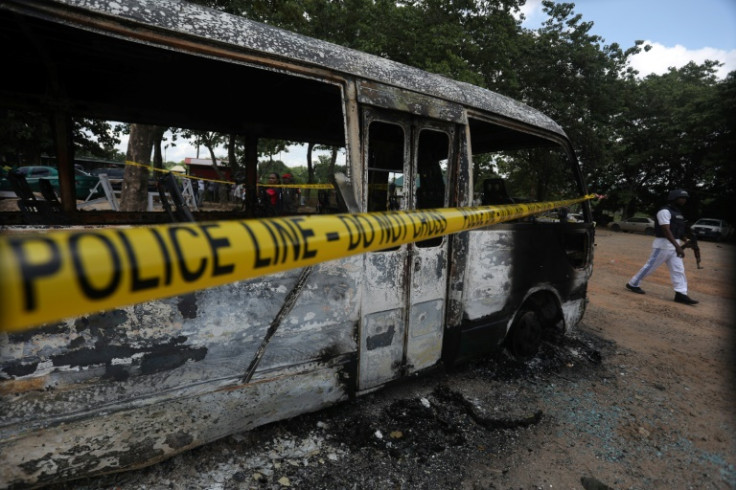Nigeria Calls For Calm After US, UK Warn Of 'Terror' Threat

Western embassies in Nigeria's capital Abuja on Monday advised their citizens in the country to limit their movements due to what they called a higher threat of a "terror" attack, despite appeals for calm from the authorities.
It was unclear if the assessment from the US, UK and other countries was based on a new threat or because of incidents that had already occurred.
Insurgents linked to the Islamic State group have claimed several attacks in states surrounding the Federal Capital Territory (FCT) in the past six months, putting many on edge in the city of six million.
On Sunday, the United States embassy in Nigeria issued an advisory warning its citizens of an "elevated risk of terror attacks in Nigeria, specifically in Abuja," without giving further details.
"Avoid all non-essential travel or movement," the statement said, adding that it was "reducing services until further notice."
Britain, Canada and Australia issued similar warnings over the weekend, recommending citizens in Nigeria and in Abuja in particular avoid public spaces where crowds gather.
The statements also reminded that schools have been targets for Nigerian insurgents in the past.
In response, Nigeria's domestic security agency known as the Department of State Services (DSS) advised "that necessary precautions are taken by all."
DSS spokesperson Peter Afunanya however said that there had been similar warnings in the past.
"The service calls for calm as it works with other law enforcement agencies and stakeholders to maintain peace and order in and beyond Abuja," he said.
Residents in the FCT, including Western diplomats, have been increasingly worried about insecurity after a mass jailbreak from Kuje in July, a prison on the outskirts of the city.
The incident, in which more than 400 inmates including dozens of suspected jihadists escaped, prompted President Muhammadu Buhari to say he was "disappointed" with his intelligence services.
The police and military said they had beefed up security in and around the city, which is surrounded by mountainous and forested areas and difficult to patrol.
Jihadists in Nigeria generally operate in the northeast of the country, far away from the capital, though they have small cells in other parts of the country.
The last time one of the groups --- Boko Haram -- attacked the city centre was in 2014.
One of former army general Buhari's main election promises in 2015 was to end insecurity but violence has continued and spread under his watch.
On October 12, a man was killed during a kidnap attempt by criminals in the wealthy neighbourhood of Maitama in Abuja, where many Western embassies are located.
In addition to the terrorism threat, the capital is also surrounded by states with high levels of banditry -- gangs of heavily armed criminals who kidnap and kill.
Analysts have warned that insecurity could worsen with the start of political campaigning to replace Buhari next year.
© Copyright AFP 2024. All rights reserved.





















